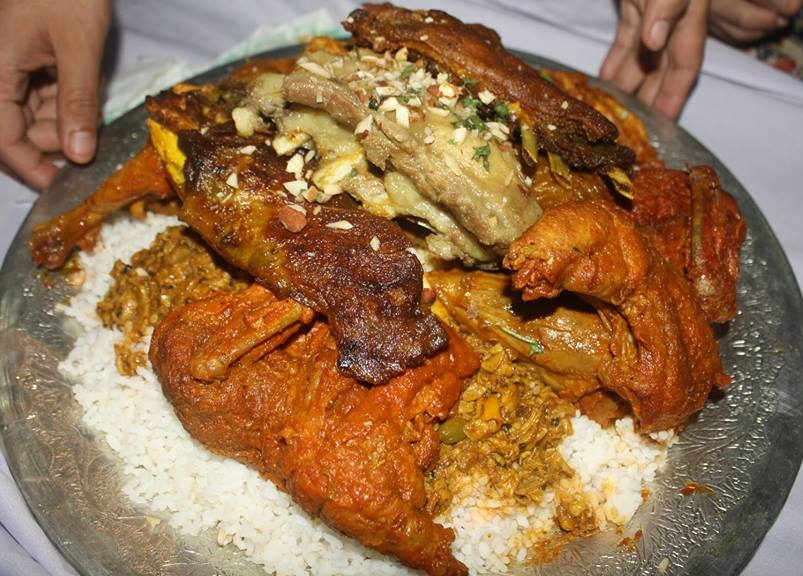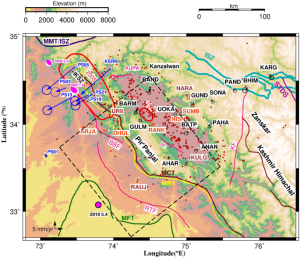
Tradition To Extravagance; Transforming Kashmiri Wedding
The wedding ceremonies have become commercialised with different rituals like the Haldi ceremony, receptions, and exchange of gifts.
By Andleeb
Weddings have become a burgeoning industry in Kashmir. From elegant wedding cards to designed attires, from expensive dry fruit boxes to huge flowery decorations, from sundried delicacies to grand ceremonies, everything has become a matter of extravagance.
Iqra (name changed), 33, is an educated girl belonging to a reputed family. Her family has been trying to find a match for her who would be a “well-settled” government employee.
The search has been going on for many years now but Iqra has failed to find a match. Like most Kashmiris, Iqra’s parents believe that a government job is a prerequisite for marriage.
Rafiya (name changed) is in her late 30s. Her family got a few marriage proposals for her but they failed to meet the demands of the bridegroom.
Her father laments the fact that marriages have been converted into a complex and costly affair by demands from the bridegroom’s side.
“In local weddings, the number of dishes is above a dozen and when it comes to the feast for the groom, (Mahraz Saal), it goes above that, with the added number of dishes,” Rafiya says.
“The social media fantasy has added fuel to the hype, as the new trends and customs get highlighted through photography, make-up, Mehandi, and wedding planning industries. These unnecessary customs have gained popularity in society,” Rafiya rues.
Two sisters Ruqayah and Neelofar (names changed) are in their late 30s. Belonging to a middle-class family, their family is facing obstacles in the search for their grooms. Matchmakers advised their parents first to renovate their house saying that it was essential for getting their daughters married off.
“While hyping the marriage and hosting Walima, the wedding gala is highly recommended but extravagance on weddings continues. The trend created by elites causes psycho-social disruption among the middle-class,” they said.
A survey conducted by a non-profit socio-religious organisation found that nearly 50,000 girls in Kashmir have crossed the marriageable age because financial constraints do not allow for extravagant wedding functions and dowries.
Of these, over 10,000 belong to the Srinagar district alone.
The wedding ceremonies have become commercialised with different rituals like the Haldi ceremony, receptions, and exchange of gifts.
“Unemployment is creating a sense of insecurity and frustration and this is not allowing me to get married,” says Masarat (name changed).
“The reason for late marriages in Kashmir is extravagant weddings. The extravagance starts from the Wazwan which contains a large number of dishes including the Rista, the Kebab, Tabak Maaz, Rogan Josh, Mirchi Korma, Aab-e-Gosh, Pulao, Gushtaba Yakhni … This extravagance does not stop here, gold choker sets, rani sets, gold coins, makeup artists, mehandi artists, photo shoots and what not is becoming a necessity of such marriages,” she says.
The lavish, excessive expenditure on trends and rituals might constitute a dream wedding for many but one needs to analyse the repercussions these unleash.
“It has resulted in a class and status divide in the society, with often elites having exuberant weddings and sumptuous feasts, becoming the talk of the town for a very long period,” says Saima (name changed). “The unnecessary trends and rituals nowadays are one of the main reasons behind the late marriages. The current trend has put the final nail in the coffin of the cultural wedding setup. The earlier Kashmiri wedding culture was relatively simple but has largely been diluted by modern rituals.”
Manzoor Ahmad (name changed) a labourer in Srinagar went into depression as he was unable to collect extravagant luxuries for his daughter’s wedding.
Having attended lavish weddings where Wazwan was served, he was under pressure to marry his daughter in a way society deemed it fit or else they would be considered “downtrodden”.
“These big fat weddings are putting an immense pressure on the middle-class and poor people, rendering them helpless and putting their economies on a ventilator,” rues Manzoor.
The marriage ceremonies have been reduced to big fat weddings, with opulent decor, sumptuous and lip-smacking cuisines, extensive rituals, and high-rolling objects of display.
“Kashmir seems to be on a brink of a social precipice as the trend of expensive weddings is taking a heavy toll on the very social fabric of the society. The trend has reached catastrophic heights during the past few decades and is somehow a result of the broken social fabric and ever-widening gap between the genders,” said a social activist.

